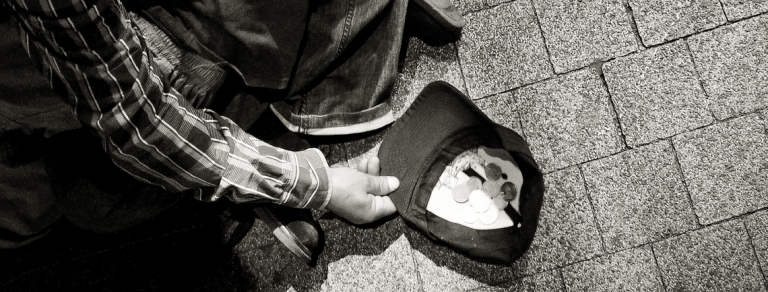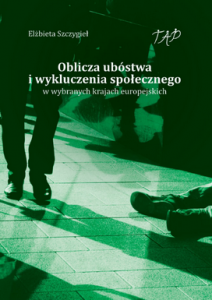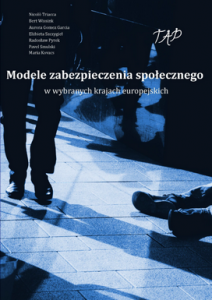Poverty and social exclusion in selected European countries – looking from different perspectives on the functioning system
Poverty and social exclusion are very complex phenomena, which is caused not only by their roots, but also because of different course they take and a number of possible solutions, that cannot always be implemented. These problems vary depending on a country they occur. The latest monographs published by ‘Center for Education and Enterprise Support’(CWEP), look at the problems of poverty and social exclusion from different viewpoints: from the perspective of a person being at risk of poverty as well as from the welfare institutions point of view.
The first publication “The face of poverty and social exclusion in chosen European countries”, shows results of a research, conducted on a group of people at poverty, socially excluded or being at risk of these problems, in six European countries: Estonia, Spain, the Netherlands, Poland, Romania, and Italy. The monograph touches on theoretical aspects of these problems and the differences resulting from various definitions, having been accepted in each of these countries. However, the key element of this publication was the analysis of the problems, based on opinions of the research participants.
One of the women being surveyed said
“My situation is tough, to meet my basic needs I have to collect scrap metal, empty bottles and for this spare money I pay for rent, electricity, gas. This is really humiliating […]. Not everyone likes the fact that I dig in the rubbish bins, looking for bottles or cans, and they encourage their children to tease me, it is very embarrassing”. [Woman, age 55]
This short fragment shows how complex was the problem in terms of the research conducted. One of the goals of this publication was an evaluation of possible preventive measures, including the development of entrepreneurial skills in the research group. For researchers, their opinions were the main source of information about possible effectiveness of this approach in overcoming poverty and social re-inclusion. The research revealed certain preferences and thought patterns, depending on the availability of support. The more effective client – oriented was the welfare system, the higher was faith in the success of this form of support. Significant in this case was also the scale and depth of poverty and exclusion, that the research participants were facing. Due to the subject matter of the suggested solution – the development of entrepreneurial skills – reviewer of this publication was Prof. Leszek Woźniak, PhD.Eng. from Rzeszow University of Technology, one of the most acknowledged expert in the field of entrepreneurship.
The second publication referred to established models of welfare security, aiming at helping people in poverty or socially excluded and the prevention of these problems. Publication “Models of social welfare in chosen European countries”, presents not only accepted solutions in all these countries, but also indicates what should be taken into consideration, so as to make way for improvements. This monograph has been developed on the basis of research conducted among the group of social workers. Their statements, comments and suggestions have been taken into account, while making recommendations. They were also asked to make a statement on how entrepreneurial skills could foster moving out of poverty and what is the best way of teaching them to people facing or in danger of social problems mentioned. The reviewer of this publication was Prof. Giancarlo Rovati from Catholic University of the Sacred Heart in Milan.
Both monographies are the result of TAP project (TAP – Together Against Poverty), managed by “Centre for Education and Enterprise Support” Association in Rzeszow, together with partners.



